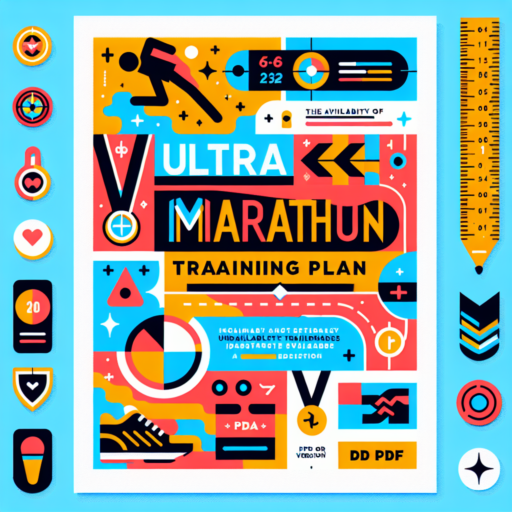How many hours does it take to run 50k?
When considering the challenge of running a 50k race, a frequently asked question is, «How many hours does it take to run 50k?» This question is significant for both amateur and seasoned runners as it helps in setting realistic training goals and expectations for race day. The time it takes to complete this distance can vary greatly depending on several factors.
Factors Influencing 50k Finish Times
Firstly, it’s important to acknowledge the variety of elements that can impact your finishing time. These include the runner’s level of experience, training background, pace strategy, and even the specific course terrain. For instance, a flat, fast course will result in quicker times compared to a hilly, technical trail. Additionally, weather conditions on the day of the race can also play a critical role in overall performance.
Average Finish Times
Generally, average finishing times for a 50k race tend to range between 4 to 7 hours for most runners. Beginners or those with less training might find themselves on the higher end of this spectrum, while experienced ultrarunners could finish in the lower range. It’s essential to bear in mind that every runner’s journey is unique, and comparing times should only serve as a guideline rather than a definitive benchmark.
Training for a 50k is a significant commitment, and understanding the potential duration of the race is a crucial aspect of this preparation. By considering the factors outlined above and setting a paced, strategic approach to both training and race day, runners can better manage their expectations and strive for personal bests within this challenging distance. Remember, the primary goal is to complete the distance; speed and time can always be improved with further training and experience.
No se han encontrado productos.
How to train for a 50k run?
Training for a 50k run is a challenge that requires a well-structured plan, patience, and dedication. To get started, it’s essential to have a solid base of running. Before embarking on a specific 50k training program, ensure you are comfortable running at least 20-30 kilometers per week. This foundation will not only improve your endurance but also minimize the risk of injury.
Building Your Base
The initial phase of your training should focus on gradually increasing your weekly mileage. Increase your longest run by no more than 10% each week. This slow progression allows your body to adapt to the increased demands without overstressing it. During this period, incorporate varied terrain into your runs to build strength and adaptability. Focus on mixing flat routes with hilly trails to condition your legs for the varied elevation you might encounter during a 50k race.
Incorporating Speed and Hill Workouts
As your endurance improves, start incorporating speed work and hill repeats into your routine. Speed sessions improve your leg turnover and efficiency, which can help you maintain a steady pace during your 50k run. Hill workouts, on the other hand, build strength and power, essential for tackling the elevation changes in trail races. One method to incorporate these is to dedicate one day a week to hill repeats and another to intervals or tempo runs, allowing ample recovery between these more intensive sessions.
Remember, the key to successfully training for a 50k run lies in consistent, gradual progression and listening to your body. Skipping rest days or ignoring signs of fatigue and injury can set you back. Incorporate strength training and flexibility exercises to support your running program and enhance your overall fitness. With patience and persistent effort, reaching the finish line of a 50k is an achievable goal.
How many miles a week should I train for a 50k?
Training for a 50k ultramarathon presents a unique and exciting challenge for many runners. A question often at the forefront for those preparing is: How many miles a week should I train for a 50k? While the answer can vary based on individual experience, fitness level, and running background, a general guideline can set you on the right path to reaching your goal.
For most runners, a weekly mileage of 40 to 50 miles during peak training weeks is a solid target. It’s crucial to build up to this mileage gradually to avoid injury and burnout. Begin by assessing your current running base and then increase your weekly mileage by no more than 10% each week. This incremental approach helps your body adapt to the increased demands of training for a long-distance event like a 50k.
In addition to increasing your weekly mileage, it’s also important to incorporate variety into your training. Include a mix of long runs, recovery runs, speed work, and hill repeats. These varied workouts not only improve your running efficiency and stamina but also reduce the risk of injury. Remember, your long runs should progressively increase in distance, offering a simulation of race day conditions and building both your physical and mental endurance for the 50k challenge.
Can I train for 50k in 6 weeks?
Preparing for a 50k race is a daunting challenge, especially when considering the intensity and dedication required for such an endurance event. When pondering the question, «Can I train for a 50k in 6 weeks?», it’s crucial to assess your current fitness level. If you are already a seasoned runner with a solid base of long-distance running, this ambitious goal might be within reach. However, for beginners or those with limited distance running experience, it’s important to proceed with caution to avoid injury.
Embarking on a 6-week training plan for a 50k requires meticulous planning and a focus on both endurance and recovery. A typical week might include varying intensities and distances of runs, coupled with rest days to allow for muscular repair and recovery. Cross-training activities such as cycling or swimming could also be incorporated to enhance cardio fitness while reducing the impact on the joints.
One key factor to consider is the importance of building up your long runs gradually. Jumping too quickly into high mileage can be a fast track to injury. Instead, increasing your longest weekly run by no more than 10% can help safely build endurance. Additionally, incorporating strength training exercises can bolster your running economy and overall muscle endurance, which are vital for tackling a 50k.




